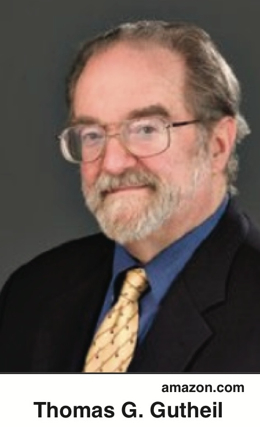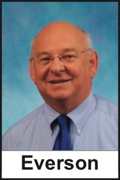Rascals case in brief
In the beginning, in 1989, more than 90 children at the Little Rascals Day Care Center in Edenton, North Carolina, accused a total of 20 adults with 429 instances of sexual abuse over a three-year period. It may have all begun with one parent’s complaint about punishment given her child.
Among the alleged perpetrators: the sheriff and mayor. But prosecutors would charge only Robin Byrum, Darlene Harris, Elizabeth “Betsy” Kelly, Robert “Bob” Kelly, Willard Scott Privott, Shelley Stone and Dawn Wilson – the Edenton 7.
Along with sodomy and beatings, allegations included a baby killed with a handgun, a child being hung upside down from a tree and being set on fire and countless other fantastic incidents involving spaceships, hot air balloons, pirate ships and trained sharks.
By the time prosecutors dropped the last charges in 1997, Little Rascals had become North Carolina’s longest and most costly criminal trial. Prosecutors kept defendants jailed in hopes at least one would turn against their supposed co-conspirators. Remarkably, none did. Another shameful record: Five defendants had to wait longer to face their accusers in court than anyone else in North Carolina history.
Between 1991 and 1997, Ofra Bikel produced three extraordinary episodes on the Little Rascals case for the PBS series “Frontline.” Although “Innocence Lost” did not deter prosecutors, it exposed their tactics and fostered nationwide skepticism and dismay.
With each passing year, the absurdity of the Little Rascals charges has become more obvious. But no admission of error has ever come from prosecutors, police, interviewers or parents. This site is devoted to the issues raised by this case.
On Facebook
Click for earlier Facebook posts archived on this site
Click to go to
Today’s random selection from the Little Rascals Day Care archives….
Click for earlier Facebook posts archived on this site
Click to go to
Today’s random selection from the Little Rascals Day Care archives….
The prosecution’s failures
Oct. 28, 2011
“If the defendants were guilty, the prosecution failed.
“If the defendants were innocent, the prosecution failed.
“The prosecution failed at everything but taking years from people’s lives, ruining their reputations, breaking up their marriages, dividing the people of a small town, wasting more than $1 million of the taxpayers’ money and smearing North Carolina’s reputation.”
– Editorial in the Wilmington Star-News, September 27, 1999
X-factor in child-witnesses’ accounts: TV
Aug. 9, 2013
“(One) area of uncertainty is the extent to which sexual knowledge is learned by young children through exposure to either explicit or sexually suggestive materials on television, video and movies. Studies indicate that children watch from 14 to 23 hours of television a week with the highest level among preschoolers. About a third of them do so without parental involvement in what they watch.”
– From “Evidence Issues and ‘Lessons’ from State v. Kelly: Litigation of Allegations of Child Sexual Abuse” by Jeffrey L. Miller and W. Michael Spivey, presented at the 6th annual North Carolina Criminal Evidence Seminar, UNC School of Law (April 16, 1993)
Among the “suggestive materials” that aired during the early days of the Little Rascals allegations: “Do You Know the Muffin Man?”
In search of a ‘frank and unblinking appraisal’
 Feb. 20, 2014
Feb. 20, 2014
Following up on the curious case of Richard Noll v. Psychiatric Times, I wrote editor-in-chief James L. Knoll IV to ask about the removal of Dr. Noll’s “satanic ritual abuse” essay from the Psychiatric Times website.
Did the journal plan to address in some fashion the issues raised in Dr.
Noll’s piece? “Unfortunately, I am not at liberty to comment on the situation,” Dr. Knoll replied.
Next I turned to Psychiatric Times’ editorial board, described on the site as “(not) just figureheads with impressive résumés…. They give us their frank and unblinking appraisal of the contents of each and every issue….”
This is from a letter I sent to 22 PT board members:
“I am writing you in response to Dr. Allen Frances’s call for psychiatrists to ‘step forward and do the right thing’ about the profession’s failure to confront the ‘satanic ritual abuse’ claims of the 1980s and early ’90s.
“As you know, Psychiatric Times removed from its website Dr. Richard Noll’s history of the SRA era….
“Dr. Noll concluded by asking: ‘Are we ready now to reopen a discussion on this moral panic? Will both clinicians and historians of psychiatry be willing to be on record? Shall we continue to silence memory, or allow it to speak?’
“How do you, as a member of the Psychiatric Times editorial board, answer these questions?
“Would you now be willing to join with Dr. Frances in formally setting the record straight about SRA and in making amends to the scores of wrongfully prosecuted victims of the moral panic?”
So far I have not been overwhelmed with responses to these questions. In fact, I have received only a single “frank and unblinking appraisal” – from Thomas G. Gutheil, professor of psychiatry, Beth Israel Deaconess Medical Center, Harvard
Medical School.
“I do agree (with Dr. Frances),” he writes. “The 1992 FBI report compiled by Kenneth Lanning should have put an end to this, when he investigated many claimed cases from law enforcement viewpoint and in multiple cases found not a shred of physical evidence, DNA, cells or bloodstains from butchered babies or sacrificed virgins.
“The problem is that social viruses like this are hard to assess and halt, like their biologic counterparts. I agree that individuals, especially in the legal system, should own up to their serious errors and miscarriages of justice, since improved science has blown up many claims, yet some prosecutors (e.g., Martha Coakley in Mass.) have not reversed themselves nor freed the imprisoned.
“However, I am not sure the entire mental health professions should share the blame.”
To be sure, distribution of responsibility among the professions is uneven – the Little Rascals prosecutors called on no psychiatrists at all, only psychologists, off-brand psychotherapists, etc.
What made Mark Everson an expert witness?
 July 2, 2012
July 2, 2012
Perhaps the prosecution’s most influential expert witness during the 1992 trial of Bob Kelly was psychologist Mark Everson, director of the Program on Childhood Trauma and Maltreatment in UNC Chapel Hill’s department of psychiatry.
Here’s how Everson responded to a defense expert’s testimony that children are suggestible and should not be repeatedly interviewed: “It’s kind of naïve. It’s the kind of statement you really wouldn’t make if you worked with these kids.”
In a Charlotte Observer interview 10 years later, Everson seemed unmoved by the continuing wave of scientific research exposing the fallacy of “Children don’t lie.” He said he found it hard to believe that every Little Rascals child-witness had been badly interviewed and confused: “There’s so much smoke there, it’s hard to imagine there’s no fire.”
Where there’s smoke there’s fire?
Good lord. I wasn’t surprised to hear such naivete from a juror – “Something must have happened,” one told Ofra Bikel — but from a respected UNC faculty member whose opinion influenced whether Bob Kelly would be convicted and imprisoned?
Last week I emailed two questions to Everson at his Chapel Hill office:
– Have you changed your mind?
– How much credence do you give researchers such as Ceci and Bruck who have demonstrated the unreliability of child-witnesses?
I’ve yet to hear back.
But it’s hard to optimistic about a possible reassessment when Everson continues to choose Kathleen Coulborn Faller as his most frequent coauthor.











0 CommentsComment on Facebook